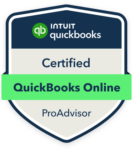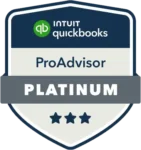Do you want to know how bookkeeping boosts your business’s profitability? While this is a common goal for all business owners, achieving it can sometimes feel like a mystery. One key to unlocking greater profitability lies in better bookkeeping.
Profitability is essential for the success and growth of any business. With it, your business might survive and grow. Bookkeeping is crucial in keeping track of all financial transactions, ensuring accuracy, and providing valuable insights that help you make informed decisions.
This blog will explore 9 strategies to improve your business’s profitability through better bookkeeping. From tracking and analyzing financial data to leveraging technology and planning for taxes, these tips will help you optimize your financial management practices.
Implementing these strategies shared by the experts at LUCI Financial Solutions to boost your profits and set your business up for long-term success. Let’s dive in and discover how bookkeeping boosts your business’s profitability!
Why is Profitability Important to a Business?

Profitability is essential because it shows how well a business is doing. When a business is profitable, it makes more money than it spends, which helps it grow and stay open. Profitability allows a business to pay its employees, invest in new products, and save money for future needs.
How is Profitability Measured?
If we are talking about how bookkeeping boosts your business’s profitability, remember that profitability is measured by the difference between the money a business makes (revenue) and the money it spends (expenses).
This is called profit. Businesses use financial statements like income statements and balance sheets to measure profitability. These documents help show if a business is making or losing money.
What Are the 3 Types of Profit Margins?
- Gross Profit Margin: This is the money left after subtracting the cost of goods sold from revenue. It shows how well a business is managing its production costs.
- Operating Profit Margin: This measures profit after subtracting operating expenses like rent and salaries. It shows how efficiently a business is running.
- Net Profit Margin: This is the profit after all expenses, including taxes and interest, are subtracted from revenue. It indicates the overall profitability of a business.
9 Ways Bookkeeping Boosts Your Business’s Profitability

1. Analyze Your Financial Data:
Think of tracking your financial data like keeping score in a game. You need to keep track of points to know if you’re winning or losing.
The same goes for your business; accurate financial tracking helps you understand where your money is going and how much you make. This is crucial for making wise decisions that will increase your profits.
Importance of Correct Financial Tracking:
Accurate financial tracking means recording every single transaction, including money earned from sales and expenses. This lets you spot trends, like which products are selling well or where you might be overspending. It also helps you stay organized and avoid mistakes that could cost you money.
Why it matters?
- It helps you see where your money is going
- Identifies areas to cut costs
- It keeps you organized and error-free
Tools for Tracking Finances:
How bookkeeping boosts your business’s profitability? Using the right tools can make financial tracking more accessible and more accurate. Here are some helpful tools you can use:
- QuickBooks
- Wave
- Xero
- Excel
2. Improve Your Cash Flow Management:
Imagine your business’s cash flow like water flowing through a pipe. You need a steady flow to keep everything running smoothly. Managing cash flow means ensuring there’s always enough money to cover expenses, which is essential for keeping your business healthy and growing.
Techniques for Improving Cash Flow:
- Invoice Promptly: Send invoices as soon as a sale is made. The quicker you invoice, the sooner you get paid.
- Offer Incentives for Early Payment: Encourage customers to pay early by offering discounts.
- Manage Inventory Wisely: Avoid overstocking by only ordering what you need when you need it.
- Control Expenses: Review your expenses regularly and cut unnecessary costs. Bookkeeping boosts your business’s profitability this way.
- Negotiate Better Terms with Suppliers: Ask for longer payment terms or bulk discounts to save money.
Why it matters?
- Ensures you have money to pay bills and employees on time
- It helps you avoid borrowing money or taking on debt
- Provides a buffer for unexpected expenses
Benefits of Maintaining Positive Cash Flow:
Maintaining a positive cash flow means having more money coming in than going out. This is crucial for the success and sustainability of your business.
- Financial Stability: Ensures you can cover day-to-day expenses without stress.
- Opportunity for Growth: You can invest in new opportunities or expand your business with extra cash.
- Better Credit: A healthy cash flow improves your credit score, making getting loans or favorable terms easier.
- Peace of Mind: Knowing you have enough money to handle any situation reduces stress and allows you to focus on growing your business.
3. Overcome Expenses:
Reducing overhead costs is like trimming the excess weight from your business to make it leaner and more efficient. Lowering these costs can significantly boost your profitability by freeing up resources that can be better used elsewhere.
Figure out unnecessary expenses:
Looking for a perfect answer on how bookkeeping boosts your business’s profitability? The first step to reducing overheads is to identify unnecessary expenses. This involves reviewing your financial records to see where your money is going. Look for patterns and areas where you might be spending too much.
Are there subscriptions or services you no longer use? Are there areas where you can reduce spending without affecting the quality of your product or service?
Tips for Identifying Expenses:
- Regular Audits: Conduct regular audits of your expenses to pinpoint areas where you can cut back.
- Categorize Spending: Break down your expenses into categories to better understand where your money is going.
- Ask for Feedback: Get input from your team on areas where you might be overspending.
Strategies to Cut Overhead Costs:
Once you’ve identified unnecessary expenses, it’s time to implement strategies to reduce them. Here are some creative ways to cut overhead costs if you are wondering how bookkeeping boosts your business’s profitability:
- Go Digital: Reduce paper and printing costs by moving to digital documents and communications.
- Outsource Non-Core Tasks: Outsourcing tasks like payroll, IT, and marketing can save money compared to hiring full-time staff.
- Negotiate with Vendors: Don’t be afraid to ask for discounts or better terms from your suppliers.
- Energy Efficiency: Implement energy-saving measures to reduce utility bills, like using energy-efficient lighting and equipment.
- Remote Work: Allowing employees to work remotely can reduce office space and related costs.
Why it matters?
- Frees up resources for investment in growth
- Increases your business’s financial health and stability
- Enhances your ability to weather financial downturns
4. Use Powerful Billing Processes:

Making sure you get paid on time is crucial for your business. This involves setting up a smooth billing process that’s easy for both you and your clients.
Streamlining Invoicing & Billing:
To streamline your invoicing, use digital tools that automate the process. This means creating and sending invoices quickly and accurately, reducing the chances of errors. Automated invoicing systems also help you track which invoices have been paid and which are still outstanding.
Tips to Streamline Invoicing:
- Use Billing Software: Tools like QuickBooks or FreshBooks can automate and simplify invoicing.
- Set Clear Payment Terms: Ensure your invoices clearly state when payments are due.
- Send Invoices Promptly: Don’t delay sending invoices after completing a job or delivering a product. This basic tip gives the perfect answer to the question, “How does bookkeeping boost your business’s profitability?”
Get Timely Payments from Clients:
Getting paid on time is essential for maintaining cash flow. To encourage timely payments, consider offering incentives for early payment or setting up reminders for due dates.
How to Ensure Timely Payments?
- Send Reminders: Use automated reminders to notify clients of upcoming due dates.
- Offer Discounts: Provide small discounts for clients who pay early.
- Follow-up: If a payment is late, promptly remind the client.
5. Take Technology Help:
Wondering how bookkeeping boosts your business’s profitability? Well, Using technology can make running your business a lot easier, especially when it comes to keeping track of your money. Bookkeeping software can help you manage your finances efficiently, saving time and reducing mistakes.
Bookkeeping software helps you keep track of all the money coming in and going out of your business. It automates many tasks, so you don’t have to do them by hand. This means you can focus more on running your business than worrying about the numbers.
Recommended Tools & Technologies:
Several tools and technologies can help you with bookkeeping. Here are some of the best ones:
- QuickBooks: A popular tool for small businesses, QuickBooks can handle invoicing, track expenses, and generate financial reports. It’s user-friendly and has many features that can help you keep your finances in order.
- FreshBooks: This tool is great for invoicing and expense tracking. It’s simple to use and can help you get paid faster by sending automated reminders to your clients.
- Wave: If you’re looking for a free option, Wave is a good choice. It’s also a perfect pick if you want to find out how bookkeeping boosts your business’s profitability. It offers invoicing, accounting, and receipt scanning without cost, making it perfect for small businesses on a budget.
- Xero: Xero offers real-time financial data and integrates with other business apps. It’s great for keeping everything connected and up to date.
How to Get Started with Bookkeeping Software?
- Choose the Right Tool: Pick the software that best fits your business needs.
- Set Up Accounts: Enter your business’s financial information to get started.
- Learn the Basics: Take some time to learn how the software works and what it can do for you.
- Regularly Update Your Data: Make sure to keep your financial information up to date to get the most accurate insights.
Benefits of Bookkeeping Software:
- Saves Time: Automates tasks like invoicing and expense tracking.
- Reduces Errors: Minimizes the chance of mistakes compared to manual bookkeeping.
- Provides Insights: Gives you a clear picture of your financial health with easy-to-read reports.
6. Budgeting & Forecasting:
Managing money is a big part of running a business, and budgeting and forecasting are two essential tools for this. Think of them as your roadmap and weather forecast for your business journey. Remember, this is how bookkeeping boosts your business’s profitability.
Creating Effective Budgets:
A budget is like a plan that tells you how much money you expect to make and how much you plan to spend. An adequate budget helps you control your finances and ensure you have enough money to run your business.
Steps to Create a Budget:
- List Your Income: Looking to have a proper budget set up and how bookkeeping boosts your business’s profitability? Well, Start by figuring out how much money your business will make. This can come from sales, services, or other sources.
- Identify Expenses: Write down everything you need to spend money on, like rent, supplies, salaries, and utilities.
- Categorize Expenses: Group similar expenses together, such as office supplies or marketing costs, to see where your money goes.
- Set Limits: Decide how much you can spend on each category to avoid overspending.
- Review and Adjust: Review your budget regularly to see if you stay on track. Make changes if needed to keep everything balanced.
Benefits of Budgeting:
- Controls Spending: Helps you avoid spending more than you earn.
- Identifies Savings Opportunities: Shows where you can cut costs.
- Improves Decision-Making: Gives you a clear picture of your finances so you can make informed choices.
Importance of Financial Forecasting:
Forecasting is like predicting the weather for your business. Moreover, it involves estimating future financial conditions based on current data. Financial forecasting helps you plan for the future and ensure your business is prepared for whatever comes next. In short, acknowledging this importance is how bookkeeping boosts your business’s profitability.
How to Do Financial Forecasting?
- Analyze Past Data: Look at your business’s financial records for patterns and trends.
- Predict Future Income: Estimate how much your business will make.
- Estimate Future Expenses: Predict your costs based on past spending and any upcoming changes.
- Create Scenarios: Plan for different possibilities, like best-case and worst-case scenarios, to be prepared for anything.
Benefits of Financial Forecasting:
- Prepares for the Future: Helps you plan for growth and unexpected events.
- Informs Strategic Decisions: Provides data to support big decisions like expanding your business or cutting costs.
- Enhances Financial Stability: Ensures you have enough money to cover expenses and invest in opportunities.
7. Organize Inventory Smoothly

Managing inventory efficiently is crucial for keeping your business running smoothly. This is how bookkeeping boosts your business’s profitability. Think of it like organizing your room so you always know where everything is. Good inventory management ensures you have enough stock to meet customer demand without overstocking.
Techniques for Inventory Management:
- Use Inventory Management Software: Tools like Zoho Inventory or TradeGecko help you track stock levels, sales, and orders in real time.
- Regular Audits: Conduct regular inventory checks to match physical stock with your records.
- Set Reorder Points: Determine the minimum stock level for each item and reorder before it runs out.
- Implement Just-In-Time (JIT) Inventory: Order stock only when needed to reduce storage costs and minimize excess inventory.
Benefits of Efficient Inventory Control:
- Cost Savings: Reduces storage costs and prevents money from being tied up in excess stock.
- Improved Cash Flow: Frees up cash for other business needs.
- Customer Satisfaction: Ensures products are always available when customers need them.
- Accurate Forecasting: Helps predict future inventory needs based on sales trends.
8. Outsource Non-Core Activities:
Outsourcing non-core activities, like bookkeeping, allows you to focus on what you do best—running your business. It’s like having a team of experts handle specific tasks so you can concentrate on your primary goals.
Benefits of Outsourcing Bookkeeping:
- Cost Savings: Reduces the need to hire full-time employees; saving on salaries and benefits is how bookkeeping boosts your business’s profitability.
- Expertise: Access to experienced professionals who ensure accuracy and compliance.
- Time Efficiency: Frees up your time to focus on core business activities and growth.
Choosing the Right Service Provider:
- Research Options: Look for providers with good reviews and a proven track record.
- Check Qualifications: Ensure the service provider has the necessary certifications and expertise.
- Consider Communication: Choose a provider that communicates clearly and promptly.
- Evaluate Costs: Compare pricing structures to find a service that fits your budget without compromising quality.
9. Prepare for Taxes:
Still looking to learn how bookkeeping boosts your business’s profitability? As business owners, preparing for taxes is essential for keeping your business financially healthy and avoiding last-minute surprises. Proper tax planning helps you understand your tax obligations and take advantage of potential deductions.
Importance of Tax Planning:
- Avoid Penalties: Ensures you pay the right amount on time, avoiding late fees and penalties.
- Maximize Deductions: Identifies deductible expenses to reduce your taxable income.
- Improve Cash Flow: This helps you plan for tax payments and avoid cash flow issues.
Tips for Managing Tax Obligations:
- Keep Accurate Records: Maintain detailed records of all transactions to support your tax filings.
- Understand Tax Deductions: Familiarize yourself with allowable deductions to reduce your tax bill.
- Consult a Tax Professional: Get expert advice to comply with tax laws and optimize your tax strategy.
- Plan for Quarterly Payments: Make estimated quarterly tax payments to avoid large end-of-year bills if required.
Conclusion:
Managing your business’s money well is very important. You can make your business more profitable by using strategies for how bookkeeping boosts your business’s profitability, such as tracking expenses, creating a budget, and planning for taxes. It’s also helpful to use tools and get advice from experts.
Moreover, If you need help with bookkeeping, contact LUCI Financial Solutions for expert services to keep your business on track.











